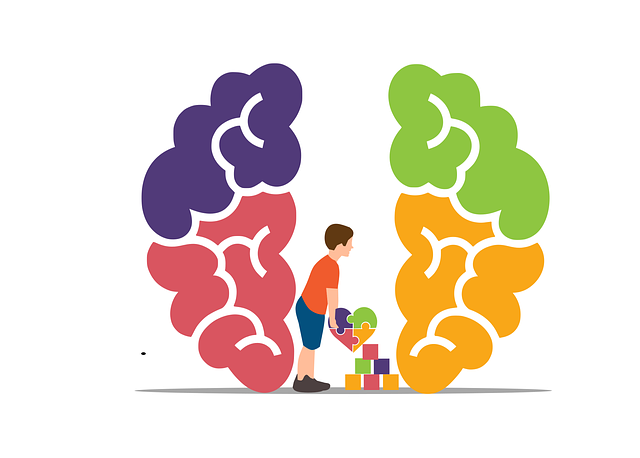In today's competitive business landscape, mental wellness coaching is a vital tool for organizations aiming to support employee well-being. By addressing workplace issues and job stress through evidence-based practices like Parker Workplace Issues and Job Stress Therapy, coaches help individuals manage anxiety, depression, and burnout. Proactive programs focused on stress reduction enhance resilience and productivity. Studies show significant benefits, including increased satisfaction, reduced turnover, and improved job performance. A comprehensive risk assessment and structured coaching approaches normalize mental health discussions, reduce stigma, and implement CBT techniques. Effective mental wellness initiatives also advocate for robust mental health policies and use evaluation methods to track progress and ensure positive outcomes.
Mental wellness coaching programs are gaining traction as a crucial initiative in modern workplaces, addressing the growing need for employee support. This article delves into the development of such programs, focusing on Parker Workplace Issues and Job Stress Therapy. We explore common challenges faced by employees, providing insights into designing effective coaching strategies. From identifying stressors to implementing successful interventions, these steps are essential for fostering improved employee wellbeing. By measuring the impact of coaching, organizations can ensure a positive return on investment in their mental health initiatives.
- Understanding Mental Wellness Coaching: A Growing Need in Modern Workplaces
- Parker Workplace Issues and Job Stress Therapy: Identifying Common Challenges
- Designing Effective Coaching Programs: Strategies for Improved Employee Wellbeing
- Implementing and Evaluating Success: Measuring the Impact of Coaching Interventions
Understanding Mental Wellness Coaching: A Growing Need in Modern Workplaces

In today’s fast-paced and demanding work environments, mental wellness coaching is emerging as a vital component in employee well-being strategies. This growing need stems from the recognition that workplace issues and job stress therapy are not merely individual struggles but can significantly impact overall organizational health. Mental wellness coaches play a pivotal role in supporting employees through various challenges, including anxiety, depression, and burnout, which have become increasingly prevalent in modern workplaces. By focusing on proactive measures like Stress Reduction Methods, organizations can foster a culture of resilience and mental agility.
The demand for such programs is not only driven by the desire to improve employee satisfaction but also by the potential long-term benefits for businesses. Studies show that implementing effective stress management workshops organization-wide can lead to increased productivity, reduced turnover rates, and improved overall job performance. As previously mentioned, understanding the intricate link between mental wellness and workplace dynamics is crucial, as it allows companies to proactively address issues before they escalate through a comprehensive Risk Assessment for Mental Health Professionals. This, in turn, ensures a happier, healthier, and more engaged workforce.
Parker Workplace Issues and Job Stress Therapy: Identifying Common Challenges

Workplace issues and job stress are prevalent challenges that significantly impact employees’ mental wellness. The Parker Workplace Issues and Job Stress Therapy approach identifies key stressors, such as heavy workloads, poor communication, lack of support, and unclear roles, which contribute to chronic stress and anxiety among professionals. This method aims to help individuals develop coping strategies and enhance their emotional well-being in the workplace.
The development of Mental Wellness Coaching Programs can incorporate techniques from this therapy to address these common challenges. By promoting Emotional Well-being Promotion Techniques, coaches can assist clients in managing stress, improving communication skills, and fostering a supportive work environment. Moreover, these programs should focus on reducing the mental illness stigma by creating safe spaces for open discussions, thereby encouraging employees to seek help and prioritize their mental health.
Designing Effective Coaching Programs: Strategies for Improved Employee Wellbeing

Effective coaching programs for mental wellness at work are designed with a structured approach to address Parker Workplace Issues and Job Stress Therapy. A key strategy involves normalizing conversations around mental health, breaking down stigma through open dialogue and education. Coaches should be trained in active listening techniques and evidence-based practices such as cognitive behavioural therapy (CBT) principles to assist employees in managing stress, anxiety, and other workplace issues.
Integrating Depression Prevention strategies within these programs is essential. This involves teaching coping skills development to enhance resilience and promote healthy work-life balance. By fostering a supportive environment where employees feel empowered to seek support, organizations can significantly improve overall mental health outcomes. Mental Health Policy Analysis and Advocacy also plays a crucial role in ensuring these initiatives are aligned with best practices and legally compliant, ultimately creating a safer and more supportive workplace culture.
Implementing and Evaluating Success: Measuring the Impact of Coaching Interventions

Implementing effective mental wellness coaching programs requires a structured approach to evaluating success and measuring the impact of interventions. This involves setting clear goals and objectives aligned with the specific needs of the target population, whether it’s employees dealing with workplace issues and job stress or individuals seeking self-esteem improvement. Regular assessment tools can be employed to gauge progress, track changes in mental health outcomes, and identify areas for enhancement.
The evaluation process should encompass both qualitative and quantitative methods. Qualitative assessments may include participant feedback, interviews, and focus groups to gain insights into their experiences and perceptions of the coaching program. Quantitative measures such as surveys, self-reported mental health scales, and performance indicators can provide tangible data on improvements in areas like stress levels, job satisfaction, and overall well-being. By combining these approaches, coaches and program developers can ensure that interventions are effective, sustainable, and positively impact participants’ mental wellness, akin to the successful implementation of Parker Workplace Issues and Job Stress Therapy or Mental Health Education Programs Design, while fostering a sense of community through Outreach Program Implementation.
Mental wellness coaching programs, particularly those inspired by Parker Workplace Issues and Job Stress Therapy, are transforming modern workplace support systems. By integrating effective coaching strategies, organizations can significantly enhance employee wellbeing. Through careful program design, implementation, and evaluation, these initiatives prove to be powerful tools in fostering a healthier, more productive work environment. This holistic approach not only addresses immediate challenges but also contributes to long-term mental resilience among workforce members.














